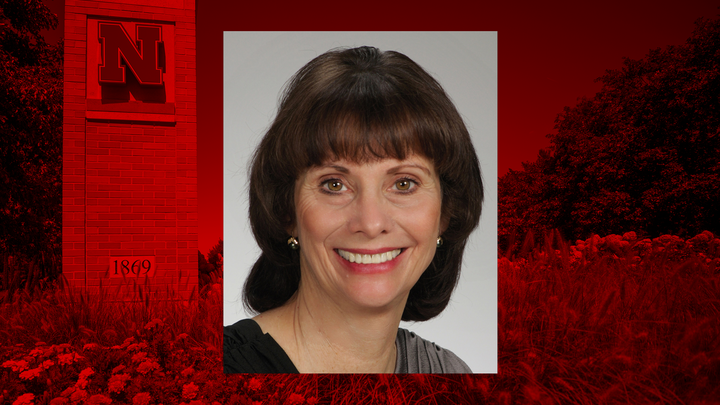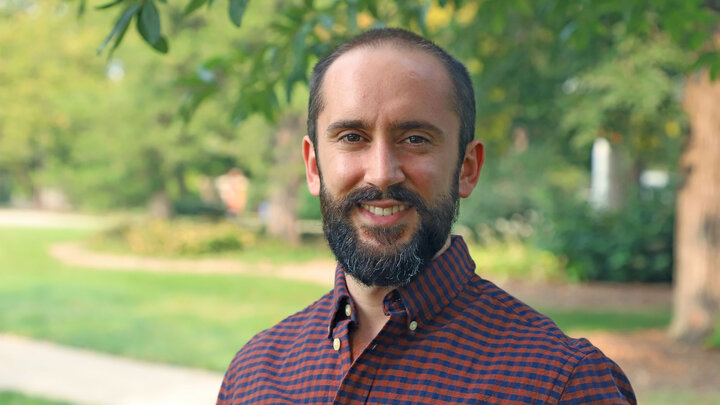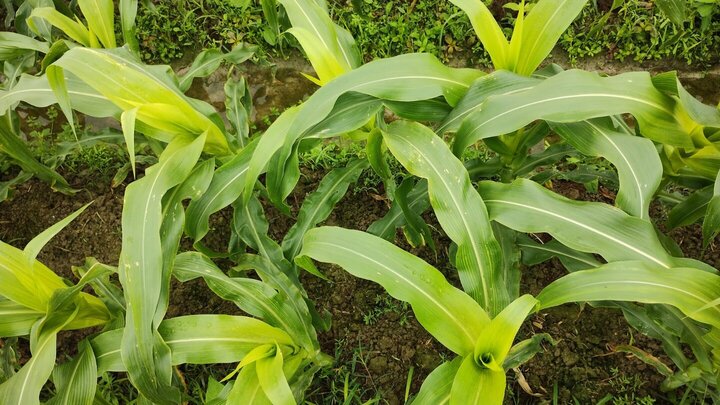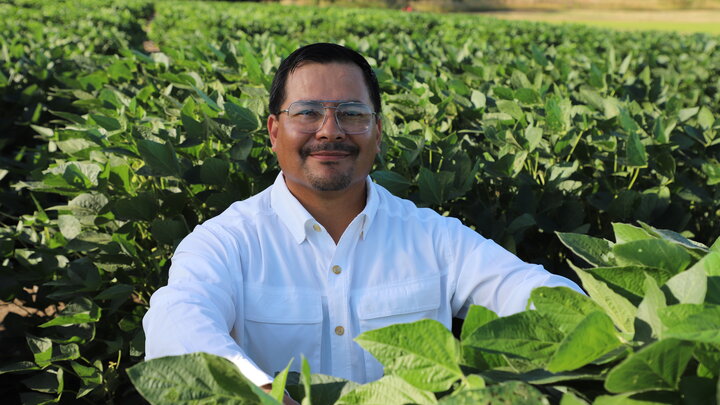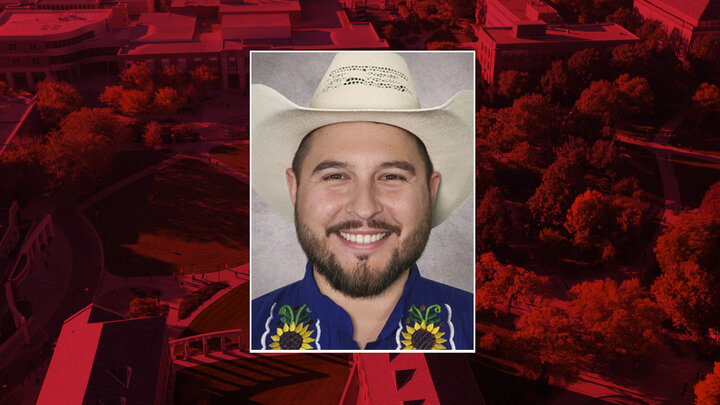Ellen Paparozzi, University of Nebraska–Lincoln professor in agronomy and horticulture, will retire Dec. 31 after a 40-year career at Nebraska. A reception in her honor will take place Dec. 9 from 3 to 5 p.m. in Keim Hall, Room 150. Cake will be served and a program will begin at 3:30 p.m.
During her prestigious career, Paparozzi has focused on horticultural science research and teaching the next generation of horticulture business leaders.
“Ellen has passionately explored many aspects of horticultural research related to plant physiology and nutrition in order to better understand environmental implications on plant appearance and recoverability,” Stacy Adams said.
Adams, an associate professor of practice in agronomy and horticulture who teaches floral design and hydroponics, said he’s thankful for the opportunity to work closely with Paparozzi on various projects and publications over the years. “She directly impacted many of my career successes and likely has provided inspiration to many others,” he said.
A native of Ho-Ho-Kus, New Jersey, Paparozzi became interested in plants working at a local floral shop throughout high school and college. She had plans to become a florist and open her own shop, but being in the top 10% of her class at Rutgers University, she was chosen for a scholarship research project. Afterward, she decided research was okay after all and added more statistics and science courses, receiving her bachelor’s degree in plant science in 1976.
She went on to earn a master’s degree and doctoral degree in floriculture and ornamental horticulture from Cornell University. After receiving her doctorate in 1980, Paparozzi was offered a position at the University of Nebraska–Lincoln she couldn’t turn down — to help build a horticulture program. She headed to Nebraska to begin her career in academia and eventually met her husband here, a faculty member in biometry (statistics).
Paparozzi said she really appreciates the agricultural knowledge held by the general public in the state. “People in Nebraska know plants and the importance of plants,” she said. “They value the work we do at the university and in the Department of Agronomy and Horticulture.”
She said her research goal was a simple one — link basic science with applied science by capitalizing on her experience in plant nutrition, plant anatomy and electron microscopy.
The most significant research contribution of her career was on sulfur deficiency and nitrogen sulfur balance in crops. Her plant nutrition research changed the fertilizer industry and prompted commercial producers to start including quantifiable amounts of sulfur in both granular and slow-release formulations such as Fison’s Champion series.
“Having had the privilege of working as Ellen’s technician/technologist for 30 years, I’ve been struck by the versatility and breadth of her plant-related research,” Liz Conley said. “Over the years she has dealt with crops such as poinsettias, lettuce, maple trees, corn, strawberries, basil, Swedish ivy and more. She has a talent for dealing with complex problems and the ability to rapidly evaluate a situation, seeing things which may not be readily obvious to others.”
Her research in controlled-environment agriculture explored alternative high-value crops — fruit and medicinal — for winter growing. She led a project to develop and compare a real-time, commercial strawberry production system in a heated high tunnel with the university’s scientifically monitored prototype greenhouse production system. Controlled-environment agriculture research provided producers and farmers the opportunity to grow strawberries and basil for essential oil using a low-cost greenhouse or heated high tunnel.
Being a plant nutritionist and plant anatomist, Paparozzi’s whole-plant physiology and anatomy lab was used by a diverse group of colleagues at Nebraska on various projects across disciplines.
“I couldn’t have accomplished all this without technologist Liz Conley and colleagues from agronomy, animal science, horticulture, natural resources, statistics, food science, biological systems engineering, biology, chemistry, chemical engineering and more at the university,” Paparozzi said.
Paparozzi was instrumental in building a nationally recognized — top 15 in the United States —undergraduate program in the science and art of horticulture at Nebraska in the 1990s. “That’s one of the reasons I came to Nebraska,” she said. “It was our goal, to work together to create one of the best horticulture curriculums in the nation.”
“Ellen is the person who I believe is a professor in the truest sense of the word,” said David Lambe, professor of practice in agronomy and horticulture. “She is the person who mentored and coached me on how to be an instructor.”
Lambe, who teaches entrepreneurship in agribusiness courses, said Paparozzi was the first to teach a distance education course in the department. “Ellen is the most innovative and creative colleague I have worked with during my time at Nebraska and she always challenged me with new ways to approach teaching.”
Paparozzi has taught 13 different courses — six currently — at the undergraduate and graduate levels including floral design, applied physiology, floriculture and nursery crop production, and Cannabis.
“My students should be able to grow any plant, anyplace, anytime under any set of conditions,” she said.
She has also taken leadership roles on departmental, College of Agricultural Sciences and Natural Resources and university teaching–related committees, and created curricula for horticulture, plant biology, option II master’s degrees and horticulture graduate certificates.
“These were all meant to keep pace with industry changes and growth and repackaging or refocusing of curricula by other major horticulture universities,” Paparozzi said.
She has advised over 200 undergraduate students and served as the adviser for the University of Nebraska–Lincoln chapter Alpha-Gamma of Pi Alpha Xi, the national horticulture honor society. Currently, the Alpha-Gamma chapter is 372 members strong. She established the chapter in 1982 and served as national vice president of Pi Alpha Xi from 2004 to 2006 and as national president from 2006 to 2008.
Over 95 undergraduate and graduate students across the Institute of Agriculture and Natural Resources have received hands-on experience manipulating plant growth, participating in plant nutrition experiments and analysis, and learning plant anatomy techniques taught by Paparozzi and Conley. Ninety–five percent of the undergraduates that worked in Paparozzi’s lab have gone on to graduate school. She has guided 30 master’s and doctoral students and served on over 50 graduate committees.
“Ellen is a gifted educator who is always, always teaching,” Conley said. “Her teaching style can be characterized by her creativity, leadership, professionalism and devoted mentoring. Further, she works constantly to update class content to keep it relevant.”
Paparozzi has published in both teaching and research. Her teaching record includes 20 journal articles and book reviews, four abstracts, two copyrights as well as department/miscellaneous publications. Her research record includes 58 research articles; 15 book chapters and proceedings (refereed) articles; 92 abstracts; one plant patent — the Concetta rose; and 28 trade magazine, department/miscellaneous publications and creative works.
“Her dedicated interest, investigational experience, and leadership has directly impacted our students through courses taught and graduate student advising,” Adams said.
Paparozzi is a Fellow and an active member of the American Society for Horticultural Science and Pi Alpha Xi. She is a member of the American Association for the Advancement of Science, American Society of Plant Biologists, Botanical Society of America, Sigma Xi, Gamma Sigma Delta, North America Colleges and Teachers of Agriculture, Graduate Women in Science and the Society of American Florists.
She has also received numerous other awards including an ASHS Outstanding Education Publication Award and is a Teacher Fellow of North American Colleges and Teachers of Agriculture. At Nebraska, Paparozzi has received the Nebraska Chapter Gamma Sigma Delta Outstanding Teacher Award, the Holling Family Award for Teaching Excellence and the President’s Citation.
Paparozzi will be retiring from a full-time, tenured position and transitioning to a special appointment for one year. She will continue her strawberry research on dormant crowns and propagules for Nebraska under a Nebraska Department of Agriculture federal grant. She will also stay busy working on a plant anatomy project with colleague Christian Elowsky, an assistant professor of practice in agronomy and horticulture. They are working on a book about the microscopic life of a green plant, particularly on kidney beans.
She looks forward to spending time with her husband, son, daughter-in-law and granddaughter. She and her husband plan to travel, take bike tours, volunteer and participate in the Osher Lifelong Learning Institute at the university.
by Fran tenBensel Benne | Agronomy and Horticulture
December 9, 2021
